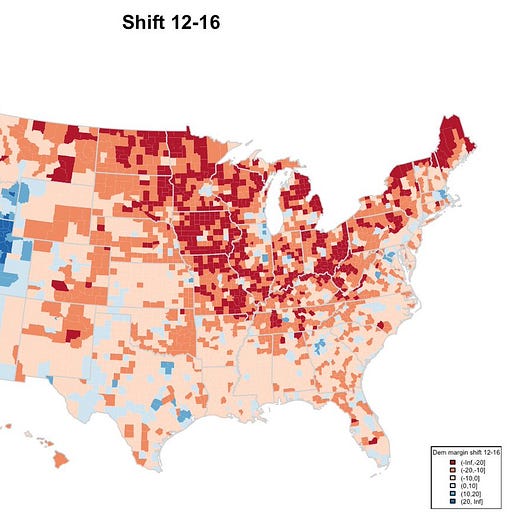T2B13: Understanding the present
Newslet
The big news this week has been Fox’s slow but steady shift away from Trump. Fox was the first station to call Arizona for Biden and stuck to their judgment despite enormous pressure. This clip from Tucker Carlon is even bigger news:
If you don’t know how to ‘read’ Fox News, it might come across as a strong defense of Trump, of whom TC has been one of the strongest supporters in the media, but actually, it’s TC (whom I otherwise dislike, to put it mildly) saying he doesn’t believe a word of Powell et. al.’s voter fraud allegations. He has been called a traitor and much worse for doing so.
2012: In Data we Trust. 2020: Not so Much.
The other big nerd news about the election is that the polls got it wrong once again. We were expecting a blow-out but instead Biden eked out a victory (not nationally, but compare the 9 point difference in polls in Wisconsin vs the actual 26000 vote, .7% win).
Here’s a post-mortem from Nate Cohn, the NYT’s data guy. According to Cohn:
But make no mistake: It’s not too early to say that the polls’ systematic understatement of President Trump’s support was very similar to the polling misfire of four years ago, and might have exceeded it.
While we are making data great again, here’s a more recent update from Cohn:
Unlike the polls, these aren’t predictions - they are tallies of how people actually voted and when aggregated, a representation of the county moving Republican or Democrat relative to the previous election (2012 or 2016 respectively). Lot’s of the US turned redder in 2012, especially in the midwest and the northeast but only a few places became redder in 2020 - but they are in South Texas/Eastern Arizona and South Florida - all counties with large Hispanic populations who are now breaking Republican.
That’s bad news for Democrats. More detailed analysis here.
We cannot understand these shifts as purely electoral plays or even as consequences of Spanish language fake news. We have to incorporate a structural perspective that takes into account the huge shifts caused by:
Cognitive capitalism and the widening gap between college educated voters and degree-less voters.
Climate change and what its doing to immigration among other things.
Existing theories seem totally inadequate - the ones with conceptual richness don’t know how to incorporate reams of data. The big data studies are too empiricist and ignorant about macro-causes.
How to combine the two? How to genuinely theorize our current condition?
I am struggling with these questions. If you are reading this piece and have ideas about how to answer them, do let me know. I would love to have a real conversation about this.






